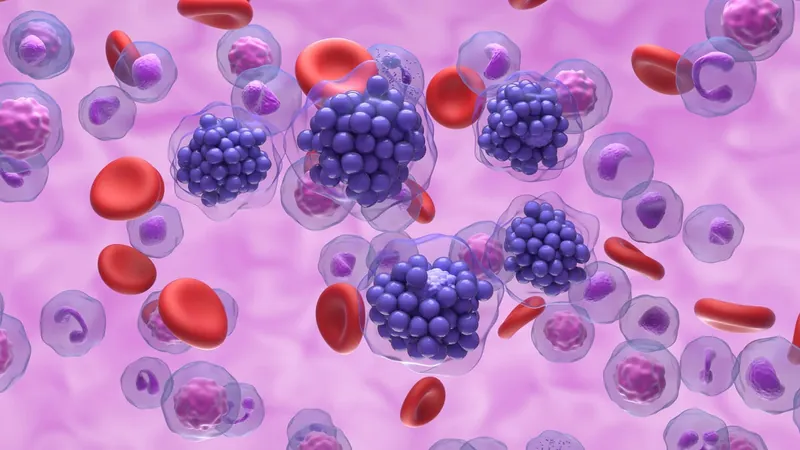
Revolutionary AI Tool from Harvard: A Game Changer for Treating Parkinson's, Alzheimer's, and Cancer!
2025-09-15
Author: Jia
Harvard Unveils Groundbreaking AI Tool
In a scientific leap that could reshape the future of healthcare, Harvard Medical School has unveiled an innovative AI model named PDGrapher. This cutting-edge technology promises to identify effective treatments that can restore healthy cellular function, potentially transforming the landscape of drug discovery.
AI Goes Beyond the Everyday
While many envision AI assisting with everyday tasks, its latest application in medicine is nothing short of extraordinary. Harvard's PDGrapher digs deep into cellular biology, analyzing the intricate connections between genes, proteins, and signaling pathways. This novel approach allows the AI to pinpoint the most effective combination of therapies that can rejuvenate diseased cells, offering hope for conditions previously deemed untreatable.
A Breakthrough in Drug Discovery
In traditional drug discovery, scientists often target one protein at a time. However, many complex diseases, including cancer, involve multiple interacting pathways—a challenge that PDGrapher is adept at overcoming. Marinka Zitnik, the study’s senior author, analogizes traditional drug discovery to a chef randomly tasting hundreds of dishes, while PDGrapher functions like a master chef, expertly crafting the ideal recipe for success.
Proven Success Across Various Cancers
Harvard's researchers trained PDGrapher on a diverse dataset of diseased cells, both pre- and post-treatment, enabling the AI to learn how to shift cells from a diseased state back to health. The model excelled in trials involving 19 datasets across 11 cancer types, predicting successful drug targets and even suggesting new avenues of treatment with clinical backing. Remarkably, PDGrapher not only scored higher in target predictions but did so at an astounding speed—up to 25 times faster than existing tools.
Expediting Treatment for Neurodegenerative Diseases
With its groundbreaking potential, the team is extending PDGrapher’s capabilities to tackle neurodegenerative conditions like Parkinson's and Alzheimer's. This could significantly speed up the research process and enhance the efficacy of treatments, particularly for diseases characterized by intricate biological mechanisms.
AI's Evolving Role in Medicine
The impact of AI in the medical field is rapidly expanding. Recent analyses suggest that AI models can dramatically accelerate drug discovery rates, with Stanford researchers successfully utilizing AI to discover new compounds faster than ever. However, as AI tools proliferate, there's a growing concern over their reliability—highlighting the importance of maintaining a balanced approach to medical advice.
The Future is Bright with AI in Healthcare
As PDGrapher and similar technologies develop, the medical community stands on the brink of a new era. With the potential to revolutionize how we approach treatment for some of the world's most challenging diseases, it's an exciting time for healthcare innovation. Stay tuned as we watch these AI advancements transform the future of medicine!




 Brasil (PT)
Brasil (PT)
 Canada (EN)
Canada (EN)
 Chile (ES)
Chile (ES)
 Česko (CS)
Česko (CS)
 대한민국 (KO)
대한민국 (KO)
 España (ES)
España (ES)
 France (FR)
France (FR)
 Hong Kong (EN)
Hong Kong (EN)
 Italia (IT)
Italia (IT)
 日本 (JA)
日本 (JA)
 Magyarország (HU)
Magyarország (HU)
 Norge (NO)
Norge (NO)
 Polska (PL)
Polska (PL)
 Schweiz (DE)
Schweiz (DE)
 Singapore (EN)
Singapore (EN)
 Sverige (SV)
Sverige (SV)
 Suomi (FI)
Suomi (FI)
 Türkiye (TR)
Türkiye (TR)
 الإمارات العربية المتحدة (AR)
الإمارات العربية المتحدة (AR)